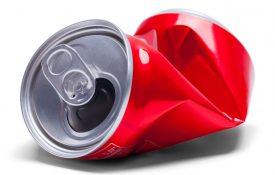-

Graphic Warning Labels Linked to Reduced Sugary Drink Purchases
Warning labels that include photos linking sugary drink consumption with obesity, type 2 diabetes, and tooth decay may reduce purchases of the drinks, a field study shows.
-

Calorie Labels Affect Decision Making in Overweight Individuals
When calorie information was displayed people who were overweight showed decision making that was similar to those who had normal weight.
-
Seven science-backed tips for forming habits that stick
Banishing bad habits and converting them to good ones is not easy. As Mark Twain once wrote, “Habit is habit, and not to be flung out the window by any man, but coaxed downstairs one
-
New Research From Clinical Psychological Science
A sample of new research exploring an incentive-sensitization model of eating behavior, interpersonal stress generation in depression, and cognitive risk factors for later development of PTSD.
-

Feeling Sated Can Become a Cue to Eat More
Internal states, even feeling full, can be learned as cues to seek out food, research shows.
-
2017 APS Janet Taylor Spence Awards for Transformative Early Career Contributions
Research by the latest recipients of the Janet Taylor Spence Award for Transformative Early Career Contributions includes romantic relationship initiation, the psychological processes that guide moral judgment, and the link between socioeconomic inequality and children’s cognitive and brain development. This year’s recipients include Paul Eastwick, Kimberly Noble, A. Janet Tomiyama, Elliot Tucker-Drob, and Liane Young.

